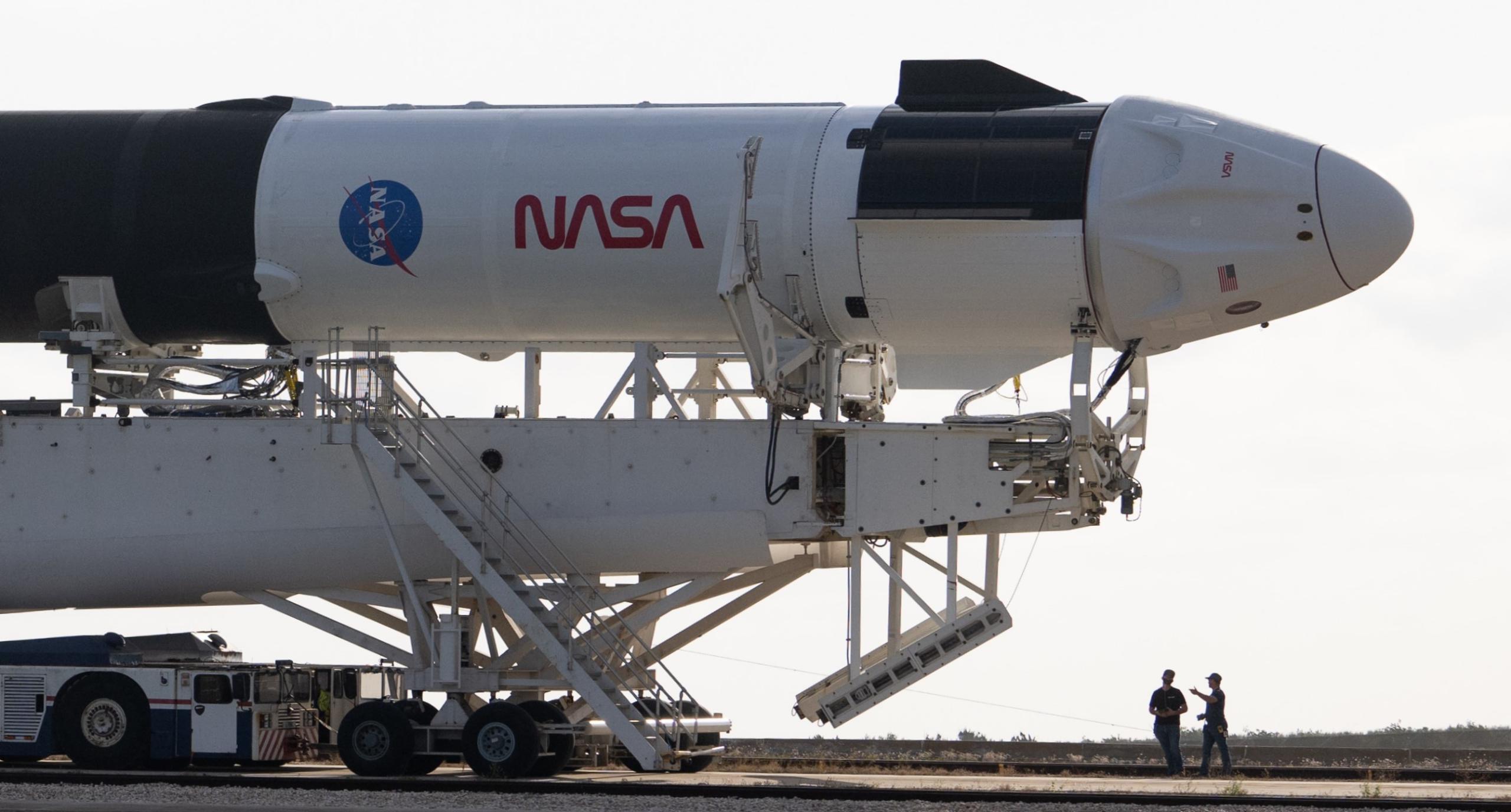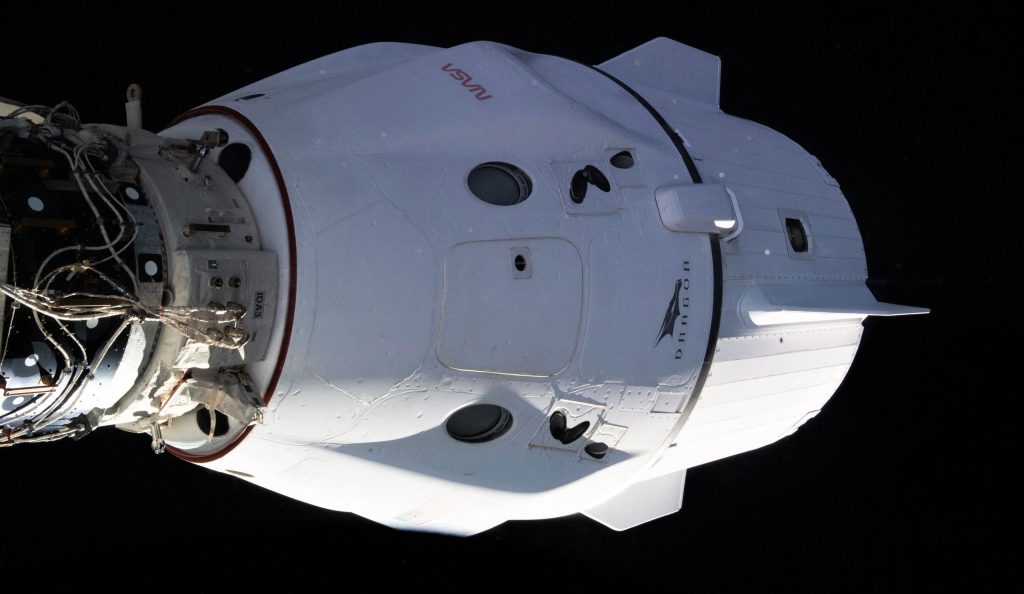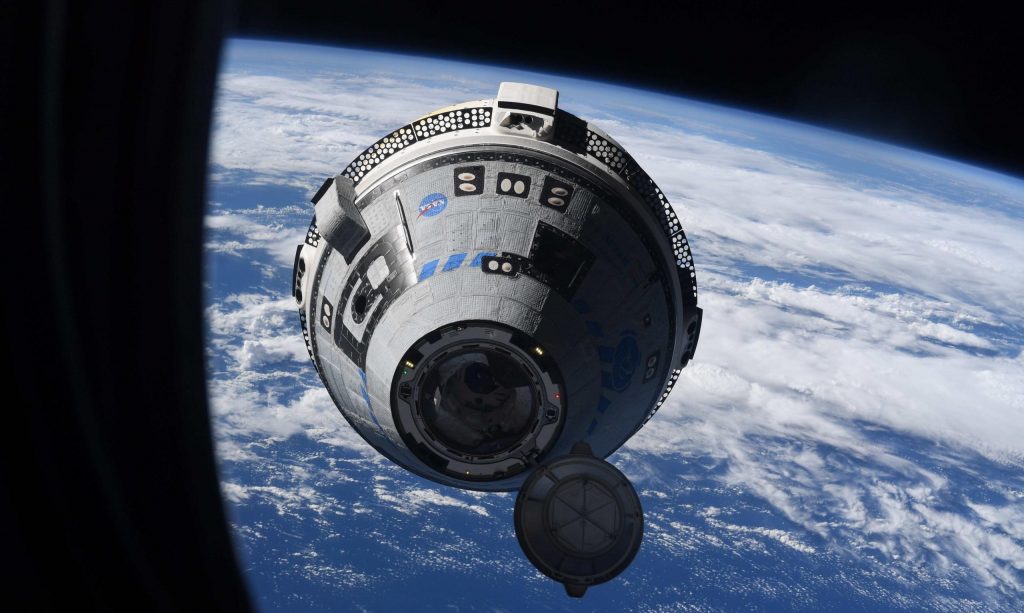

News
NASA awards SpaceX five more Dragon astronaut launch contracts
NASA has finalized plans to purchase another five Crew Dragon launches from SpaceX, securing its astronauts access to the International Space Station (ISS) through 2030.
The award comes three months after NASA issued a notice of intent to purchase five additional missions from SpaceX. The space agency signed a different contract for three more Crew Dragon launches just three months before the latest order, meaning that NASA has now purchased eight new Crew Dragon launches from SpaceX in six months – doubling the spacecraft’s future launch manifest in the process.
August 31st’s order adds Crew missions 10 through 14 to Crew Dragon’s roster and brings its total number of planned operational NASA astronaut launches to 14. NASA says the five extra missions will cost $1.44 billion and raise the total value of SpaceX’s Crew Dragon CCtCap contract to $4.93 billion.
Factoring in a sum of approximately $2.74 billion that funded development and three test launches, NASA will ultimately pay an average of $328 million for each of 15 productive Crew Dragon astronaut launches (including Demo-2, the spacecraft’s first crewed test flight). Assuming four astronauts fly on each operational launch, the average price per astronaut launched through 2030 will be $85 million.
With its latest contract, NASA will beat that average and pay $288 million per launch ($72 million per astronaut). Crew-10 through Crew-14 will likely occur in the late 2020s, meaning that the space agency may be saving even more money than is immediately obvious. Assuming an inflation rate of 2.5% over the next eight years, $288 million today could be worth around $235 million in 2030. SpaceX is not paid until after its services are rendered.

NASA’s decision to award SpaceX eight new Crew Dragon launch contracts in 2022 is a major blow to its second Commercial Crew provider, Boeing, which has received zero additional orders. It also emphasizes just how good of a deal the agency got with SpaceX. Once said to be “well positioned to fly [its] first crew in early 2020,” Boeing’s Starliner crew capsule finally completed its first (mostly) successful uncrewed test flight in May 2022. Boeing and NASA are now working towards February 2023 for the spacecraft’s first crewed test flight, delaying Starliner’s first operational astronaut launch until late 2023 at the earliest.
Starliner still has only six operational launch contracts, which date back to ta guarantee in the original 2014 CCtCap awards that promised 2-6 operational launch contracts per provider. Thanks to NASA’s fixed-price contract with Boeing, the agency won’t have to cover the almost $700 million that years of Starliner delays and a test flight do-over have cost the company to date, but taxpayers will still end up paying a total of $4.49 billion – $748 million per operational Boeing astronaut launch.

Even using iffy Boeing calculus that claims NASA will get five seats of value per launch by adding an extra astronaut or cargo, the space agency would end up paying $150 million per astronaut through 2030. If only four astronauts launch on each Starliner, the average price per seat rises to $187 million.
Unless Boeing is able to find a commercial customer willing to burn tens or hundreds of millions of dollars to avoid launching private astronauts with SpaceX, it may never recoup the losses it has incurred developing Starliner. Worse, without Boeing paying even more out of pocket to certify Starliner to launch on a different rocket, the spacecraft will find itself without a certified rocket after its sixth operational launch.
Meanwhile, on top of eight new NASA contracts, Crew Dragon has already supported two private astronaut launches and SpaceX has contracts for five more private missions through 2024. Put simply, thanks in large part to the void created by Boeing’s surprising shortcomings, SpaceX practically owns the western market for crewed orbital spaceflight and will likely continue to dominate it throughout the 2020s.
News
Tesla cleared in Canada EV rebate investigation
Tesla has been cleared in an investigation into the company’s staggering number of EV rebate claims in Canada in January.

Canadian officials have cleared Tesla following an investigation into a large number of claims submitted to the country’s electric vehicle (EV) rebates earlier this year.
Transport Canada has ruled that there was no evidence of fraud after Tesla submitted 8,653 EV rebate claims for the country’s Incentives for Zero-Emission Vehicles (iZEV) program, as detailed in a report on Friday from The Globe and Mail. Despite the huge number of claims, Canadian authorities have found that the figure represented vehicles that had been delivered prior to the submission deadline for the program.
According to Transport Minister Chrystia Freeland, the claims “were determined to legitimately represent cars sold before January 12,” which was the final day for OEMs to submit these claims before the government suspended the program.
Upon initial reporting of the Tesla claims submitted in January, it was estimated that they were valued at around $43 million. In March, Freeland and Transport Canada opened the investigation into Tesla, noting that they would be freezing the rebate payments until the claims were found to be valid.
READ MORE ON ELECTRIC VEHICLES: EVs getting cleaner more quickly than expected in Europe: study
Huw Williams, Canadian Automobile Dealers Association Public Affairs Director, accepted the results of the investigation, while also questioning how Tesla knew to submit the claims that weekend, just before the program ran out.
“I think there’s a larger question as to how Tesla knew to run those through on that weekend,” Williams said. “It doesn’t appear to me that we have an investigation into any communication between Transport Canada and Tesla, between officials who may have shared information inappropriately.”
Tesla sales have been down in Canada for the first half of this year, amidst turmoil between the country and the Trump administration’s tariffs. Although Elon Musk has since stepped back from his role with the administration, a number of companies and officials in Canada were calling for a boycott of Tesla’s vehicles earlier this year, due in part to his association with Trump.
News
Tesla Semis to get 18 new Megachargers at this PepsiCo plant
PepsiCo is set to add more Tesla Semi Megachargers, this time at a facility in North Carolina.

Tesla partner PepsiCo is set to build new Semi charging stations at one of its manufacturing sites, as revealed in new permitting plans shared this week.
On Friday, Tesla charging station scout MarcoRP shared plans on X for 18 Semi Megacharging stalls at PepsiCo’s facility in Charlotte, North Carolina, coming as the latest update plans for the company’s increasingly electrified fleet. The stalls are set to be built side by side, along with three Tesla Megapack grid-scale battery systems.
The plans also note the faster charging speeds for the chargers, which can charge the Class 8 Semi at speeds of up to 1MW. Tesla says that the speed can charge the Semi back to roughly 70 percent in around 30 minutes.
You can see the site plans for the PepsiCo North Carolina Megacharger below.

Credit: PepsiCo (via MarcoRPi1 on X)

Credit: PepsiCo (via MarcoRPi1 on X)
READ MORE ON THE TESLA SEMI: Tesla to build Semi Megacharger station in Southern California
PepsiCo’s Tesla Semi fleet, other Megachargers, and initial tests and deliveries
PepsiCo was the first external customer to take delivery of Tesla’s Semis back in 2023, starting with just an initial order of 15. Since then, the company has continued to expand the fleet, recently taking delivery of an additional 50 units in California. The PepsiCo fleet was up to around 86 units as of last year, according to statements from Semi Senior Manager Dan Priestley.
Additionally, the company has similar Megachargers at its facilities in Modesto, Sacramento, and Fresno, California, and Tesla also submitted plans for approval to build 12 new Megacharging stalls in Los Angeles County.
Over the past couple of years, Tesla has also been delivering the electric Class 8 units to a number of other companies for pilot programs, and Priestley shared some results from PepsiCo’s initial Semi tests last year. Notably, the executive spoke with a handful of PepsiCo workers who said they really liked the Semi and wouldn’t plan on going back to diesel trucks.
The company is also nearing completion of a higher-volume Semi plant at its Gigafactory in Nevada, which is expected to eventually have an annual production capacity of 50,000 Semi units.
Tesla executive teases plan to further electrify supply chain
News
Tesla sales soar in Norway with new Model Y leading the charge
Tesla recorded a 54% year-over-year jump in new vehicle registrations in June.

Tesla is seeing strong momentum in Norway, with sales of the new Model Y helping the company maintain dominance in one of the world’s most electric vehicle-friendly markets.
Model Y upgrades and consumer preferences
According to the Norwegian Road Federation (OFV), Tesla recorded a 54% year-over-year jump in new vehicle registrations in June. The Model Y led the charge, posting a 115% increase compared to the same period last year. Tesla Norway’s growth was even more notable in May, with sales surging a whopping 213%, as noted in a CNBC report.
Christina Bu, secretary general of the Norwegian EV Association (NEVA), stated that Tesla’s strong market performance was partly due to the updated Model Y, which is really just a good car, period.
“I think it just has to do with the fact that they deliver a car which has quite a lot of value for money and is what Norwegians need. What Norwegians need, a large luggage space, all wheel drive, and a tow hitch, high ground clearance as well. In addition, quite good digital solutions which people have gotten used to, and also a charging network,” she said.
Tesla in Europe
Tesla’s success in Norway is supported by long-standing government incentives for EV adoption, including exemptions from VAT, road toll discounts, and access to bus lanes. Public and home charging infrastructure is also widely available, making the EV ownership experience in the country very convenient.
Tesla’s performance in Europe is still a mixed bag, with markets like Germany and France still seeing declines in recent months. In areas such as Norway, Spain, and Portugal, however, Tesla’s new car registrations are rising. Spain’s sales rose 61% and Portugal’s sales rose 7% last month. This suggests that regional demand may be stabilizing or rebounding in pockets of Europe.
-

 Elon Musk2 weeks ago
Elon Musk2 weeks agoTesla investors will be shocked by Jim Cramer’s latest assessment
-

 Elon Musk2 days ago
Elon Musk2 days agoxAI launches Grok 4 with new $300/month SuperGrok Heavy subscription
-

 Elon Musk4 days ago
Elon Musk4 days agoElon Musk confirms Grok 4 launch on July 9 with livestream event
-

 News1 week ago
News1 week agoTesla Model 3 ranks as the safest new car in Europe for 2025, per Euro NCAP tests
-

 Elon Musk2 weeks ago
Elon Musk2 weeks agoA Tesla just delivered itself to a customer autonomously, Elon Musk confirms
-

 Elon Musk1 week ago
Elon Musk1 week agoxAI’s Memphis data center receives air permit despite community criticism
-

 News2 weeks ago
News2 weeks agoXiaomi CEO congratulates Tesla on first FSD delivery: “We have to continue learning!”
-

 News2 weeks ago
News2 weeks agoTesla sees explosive sales growth in UK, Spain, and Netherlands in June

















